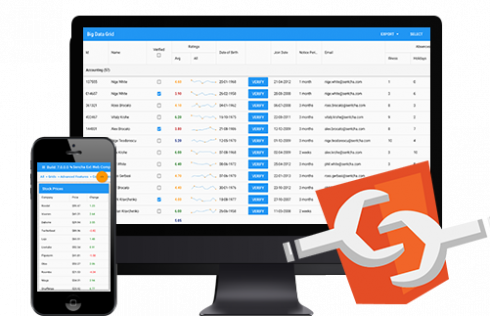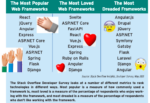
Sencha announced the launch of ExtWebComponents, a new solution that features tested and supported UI components designed to work with any or with no development framework, while reducing application delivery time and costs.
The solution includes more than 140 components, and is included as part of Sencha’s Ext JS Enterprise Package. The Sencha private npm registry includes functionalities such as grid, pivot grid, exporter, layouts, charts, D3 visualizations, forms, calendar, ext-web-components-gen and material theme.
“Today’s launch of ExtWebComponents builds on our Ext JS 7.0 release by allowing any developer on any JavaScript framework to pick and choose their favorite components from Sencha’s pre-built UI component library,” said Kegan Blumenthal, general manager of Sencha. “It’s one more proof point in our goal to make cross-platform application development faster and easier than ever, regardless of the device or business problem presented.”
The full details about the new offering are available here.
Facebook announces the Deepfake Detection Challenge
Facebook announced a Deepfake Detection Challenge (DFDC) to inspire more research into creating better open-source tools and a benchmark for detecting the AI-generated videos of real people doing and saying fictional things.
“The goal of the challenge is to produce technology that everyone can use to better detect when AI has been used to alter a video in order to mislead the viewer,” Mike Schroepfer, CTO for Facebook, wrote in a blog post.“The Deepfake Detection Challenge will include a data set and leaderboard, as well as grants and awards, to spur the industry to create new ways of detecting and preventing media manipulated via AI from being used to mislead others.”
The full data set release and the DFDC launch will happen at the Conference on Neural Information Processing Systems (NeurIPS) this December.
ML.NET 1.4 preview and model builder updates
Microsoft announced the ML.NET 1.4 preview and updates to the model builder and CLI. The update includes bug fixes and new features.
New features include Database Loader that enables training directly against relational databases; image classification with deep neural networks retraining; enhancements for .NET Core 3.0; and an updated model builder in VS and CLI.
Developers can use their existing tools and skill sets to develop and infuse custom ML into applications with ML.Net 1.4 Preview, according to Microsoft.
The detailed list of features are available here.






